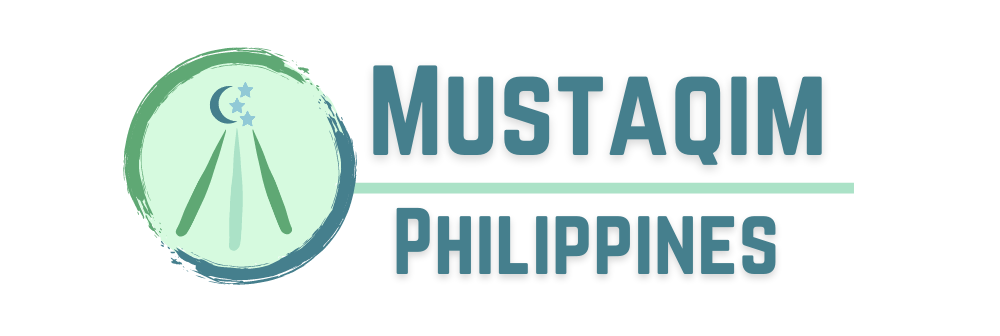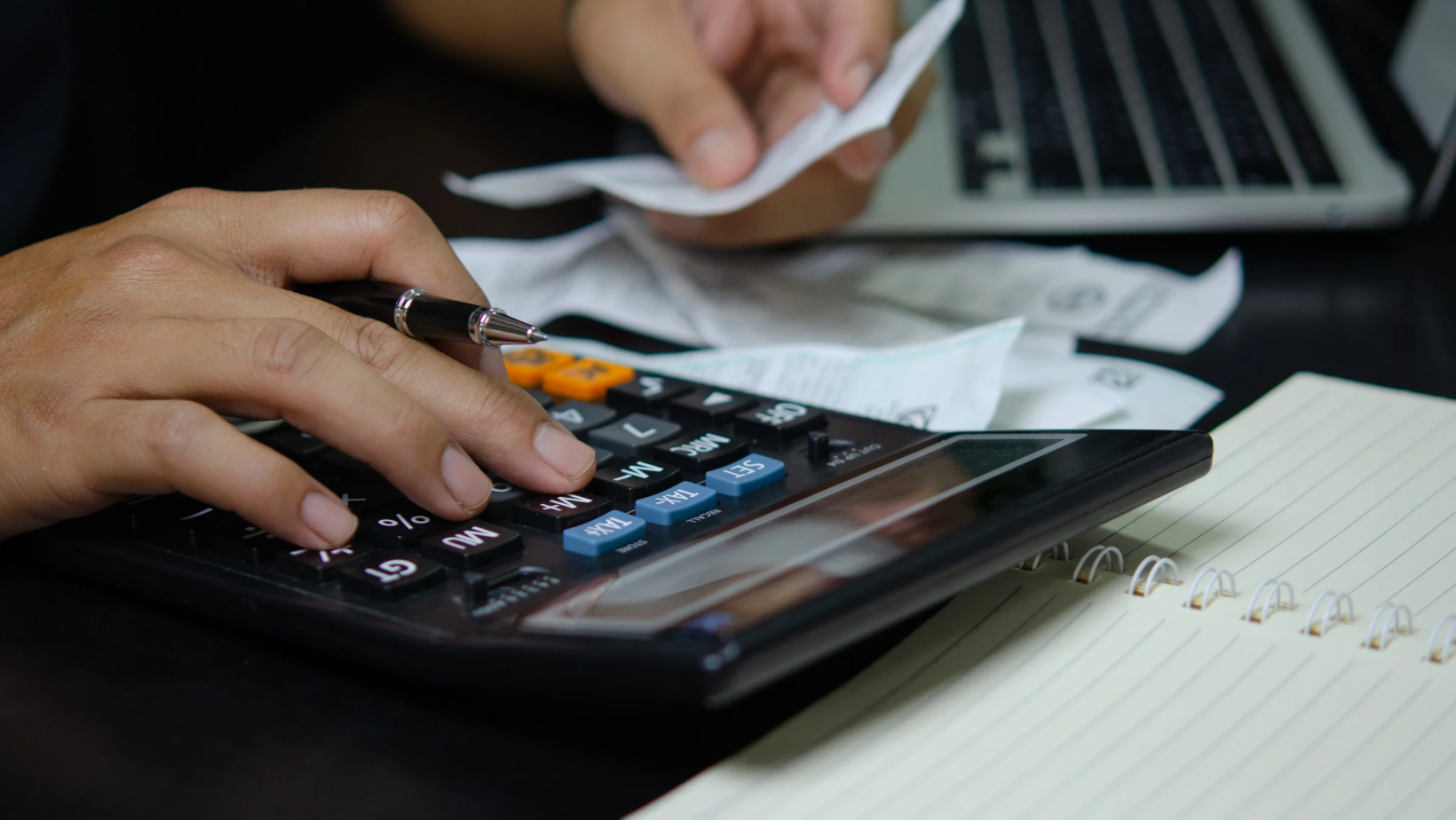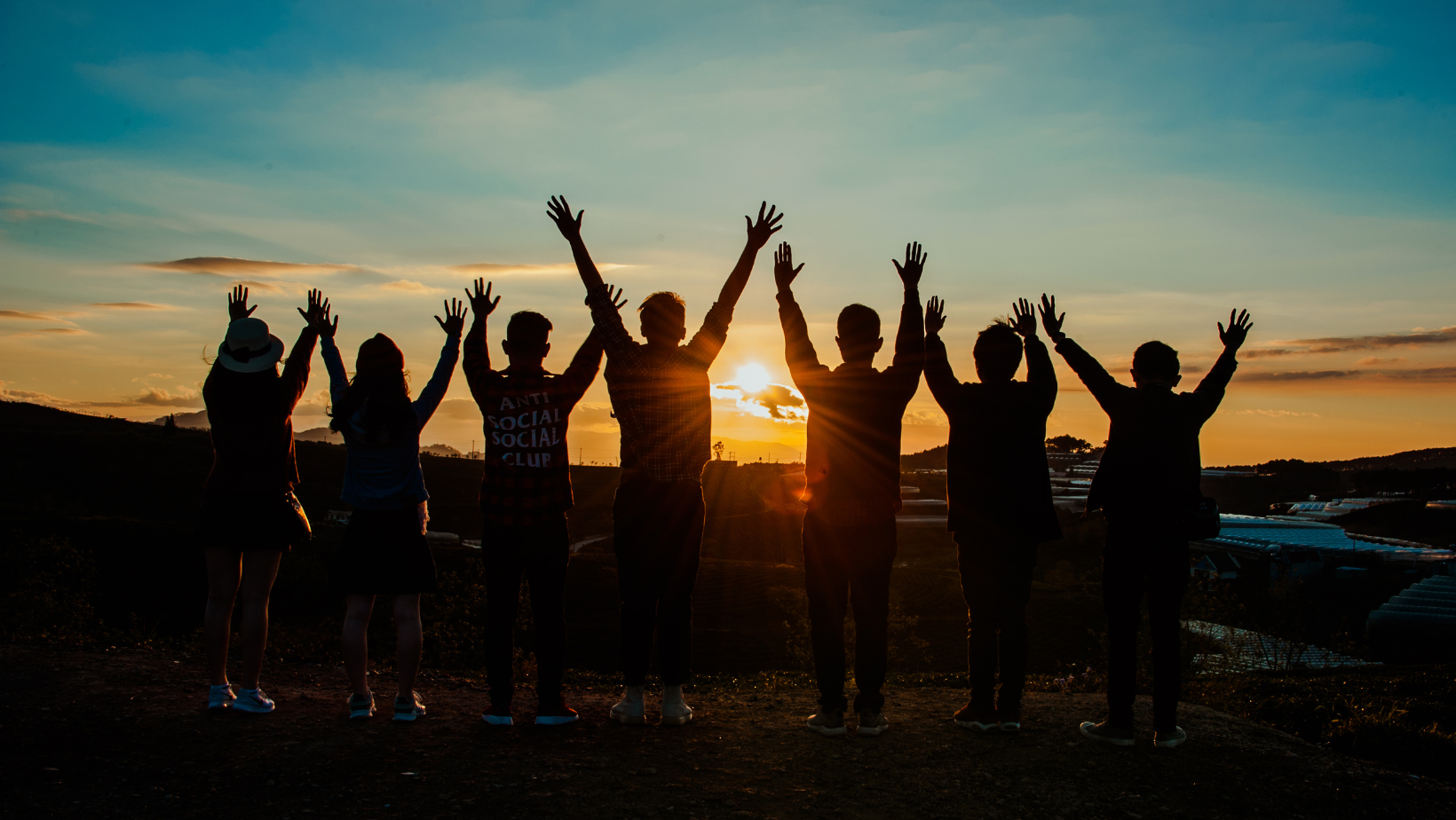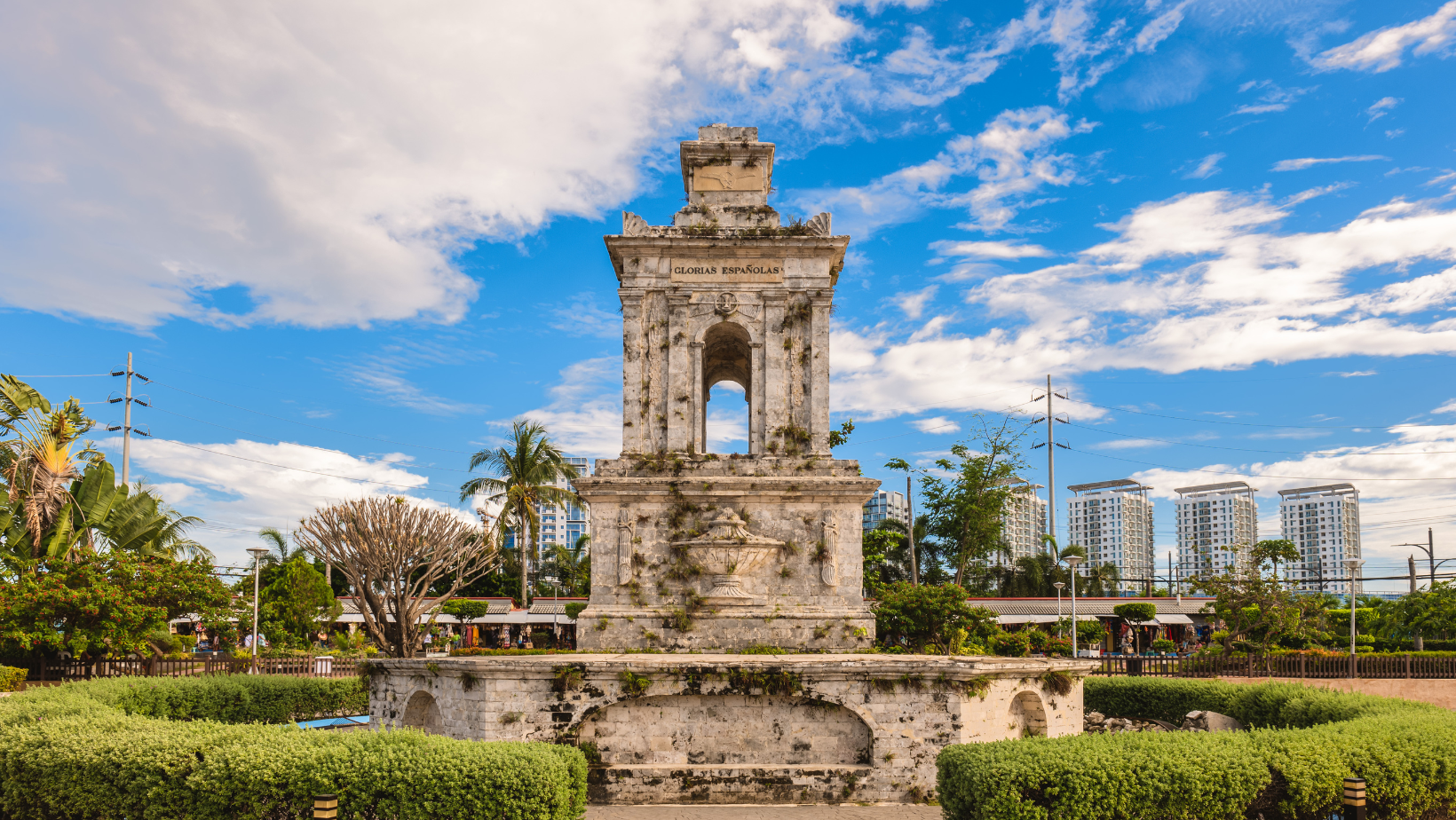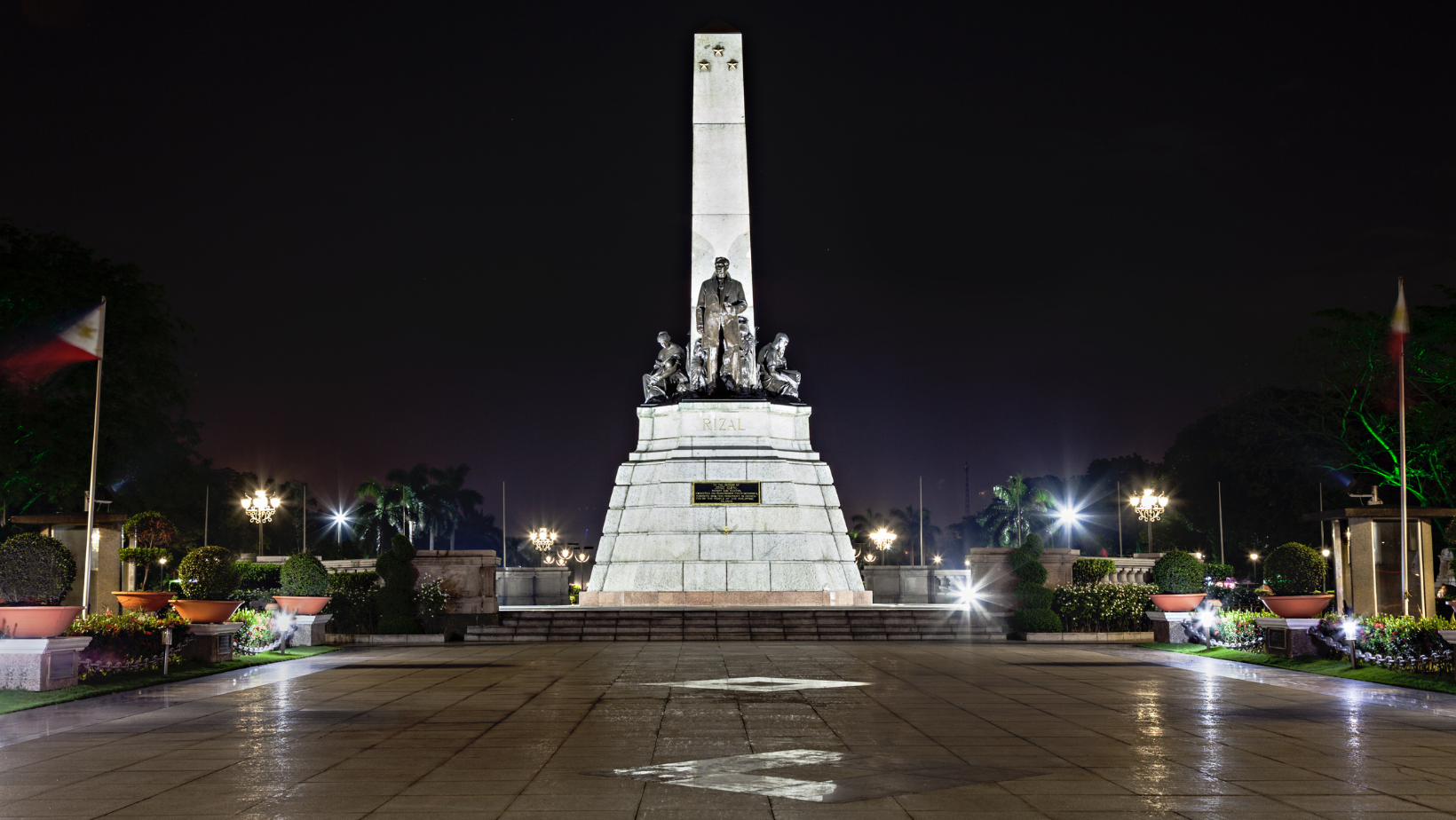Pagkakaisa ng mga Pilipino: Mga Boluntaryo sa Panahon ng Bagyong Carina
Sa harap ng panganib na dala ng bagyong Carina, ipinakita ng mga Pilipino ang tunay na diwa ng bayanihan at pagkakaisa sa pamamagitan ng pagtulong sa kanilang kapwa sa araw na ito.
Sa isang barangay sa Aurora, mga kabataang boluntaryo mula sa lokal na youth organization ang nag-organisa ng paghahanda at pamimigay ng mga relief goods. Sa tulong ng barangay officials, nagsagawa sila ng pag-empake ng pagkain, tubig, at iba pang pangangailangan ng mga pamilyang naapektuhan ng bagyo. "Napakahirap ng sitwasyon ngayon, pero kailangan naming magtulungan. Malaking tulong na makatulong sa kapwa," sabi ni Michael, isa sa mga boluntaryo.
Sa bayan ng Casiguran, nagtayo rin ng temporary evacuation centers ang mga boluntaryo kasama ang lokal na disaster response team. Nagsilbing katuwang nila ang mga kabataang scouts sa pagtatayo ng mga tent at pag-aayos ng mga pasilidad upang matiyak na ligtas ang mga evacuees. "Sa tulong ng mga kabataan at ng aming komunidad, mas mapapanatag namin ang loob ng mga pamilyang nasa evacuation center," ani ni Liza, isa sa mga volunteer leaders.
Sa kabila ng unos, hindi rin nag-atubiling magbahagi ng kanilang oras at tulong ang mga lokal na lider at mga organisasyon tulad ng Rotary Club at Red Cross. Sa pamamagitan ng kanilang koordinasyon, nagawa nilang magdala ng agarang tulong at impormasyon sa mga residente ng mga apektadong barangay. "Kailangan naming magsikap na makatulong. Ito ang panahon na kailangan tayong magkaisa," sabi ni G. Rodriguez, isang volunteer mula sa Rotary Club.
Sa mga komunidad na pinaka-naapektuhan ng bagyo, patuloy ang pagtutulungan ng mga Pilipino upang masiguro ang kaligtasan at kagalingan ng bawat isa. Ang mga pangyayaring ito ay nagpapatunay na kahit sa gitna ng krisis, ang diwa ng bayanihan at pagkakaisa ng mga Pilipino ay tunay at buhay na buhay, nagbibigay ng pag-asa at lakas sa bawat isa para malampasan ang anumang pagsubok na dumadating sa ating bayan.
Sa kabuuan, ang pagkakaisa ng mga Pilipino sa panahon ng bagyong Carina ay nagpapatunay na ang pagmamahal sa kapwa at pagkakaisa sa mga oras ng kagipitan ay patuloy na nagbibigay ng inspirasyon at lakas sa ating bayan.
Ang Kahalagahan ng Bakawan sa kalikasan at kabuhayan ng Pilipinas
Ang bakawan, o mangrove, ay isang uri ng halaman na karaniwang tumutubo sa baybayin, mga estero, at iba pang mabababang lugar na binabaha ng tubig-alat. Ang mga bakawan ay may kakaibang ugat na tila nakaangat sa tubig, na tumutulong sa kanila na mabuhay sa maalat na kapaligiran. May iba't ibang uri ng bakawan na matatagpuan sa Pilipinas tulad ng bakhaw, api-api, pagatpat, at nilad.
Mga benepisyo ng Bakawan
Pag-iwas sa Erosyon at Baha
Ang mga ugat ng bakawan ay tumutulong sa pagpapatibay ng lupa sa baybayin, kaya't nababawasan ang erosyon. Nagbibigay rin ito ng proteksyon laban sa malalakas na alon at storm surge, na nakakapigil sa pagbaha sa mga komunidad na malapit sa dagat.
Pabahay ng mga hayop
Ang bakawan ay nagsisilbing tahanan ng iba't ibang uri ng hayop tulad ng isda, alimango, hipon, at iba pang mga lamang-dagat. Ang mga lugar na may malalaking bakawan ay mayamang pinagkukunan ng pagkain at kabuhayan para sa mga mangingisda.
Paglinis ng tubig
Ang bakawan ay may kakayahang sumala ng mga dumi at polusyon sa tubig. Ang kanilang ugat ay nagsisilbing natural na filter na nagtatanggal ng mga nakalalasong kemikal at mga sediment sa tubig, kaya't nagiging mas malinis ang tubig sa kanilang paligid.
Pang-ekonomiyang benepisyo
Ang mga bakawan ay nagbibigay ng maraming produkto tulad ng kahoy, panggatong, at iba pang materyales na ginagamit sa pang-araw-araw na buhay. Ang mga mangingisda at lokal na komunidad ay umaasa rin sa mga lamang-dagat na nakukuha mula sa mga bakawan bilang kanilang pangunahing kabuhayan.
Proteksyon sa klima
Ang mga bakawan ay may malaking papel sa pag-imbak ng carbon dioxide, na tumutulong sa pag-iwas sa climate change. Ang kanilang mga puno at ugat ay nagtatago ng malaking halaga ng carbon, na nakakatulong sa pagpapababa ng global warming.
Mahalaga ang aktibong pagtatanim at pangangalaga ng mga bakawan upang mapanatili ang kanilang mga benepisyo. Narito ang ilang hakbang na maaaring gawin upang mapangalagaan ang mga bakawan:
Paglilinis ng baybayin:
Tanggalin ang mga basura at plastik sa paligid ng mga bakawan upang hindi ito makasira sa kanilang paglaki.
Pagpapatupad ng mga batas:
Siguraduhing nasusunod ang mga batas na nagpoprotekta sa mga bakawan at sa kanilang tirahan.
Edukasyon at kampanya:
Palawakin ang kaalaman ng publiko tungkol sa kahalagahan ng bakawan at hikayatin ang mga komunidad na makilahok sa mga proyekto ng reforestation.
Ang bakawan ay isang mahalagang yaman ng kalikasan na nagbibigay ng maraming benepisyo sa Pilipinas. Mula sa proteksyon laban sa kalamidad, pagpapayaman ng biodiversity, paglilinis ng tubig, hanggang sa pag-imbak ng carbon, ang bakawan ay tunay na mahalaga sa ating kapaligiran at ekonomiya. Sa pamamagitan ng tamang pangangalaga at pagpapalaganap ng kaalaman tungkol sa bakawan, maipapamana natin ang kanilang kagandahan at halaga sa susunod na henerasyon.
Mga Paalala at Tips para sa panahon ng tag-ulan sa Pilipinas
Habang papalapit ang panahon ng tag-ulan sa Pilipinas, mahalaga na tayo ay maging handa upang maiwasan ang mga posibleng sakuna at abala. Narito ang ilang mahahalagang paalala at tips upang maging ligtas at handa sa panahon ng tag-ulan.
Maghanda ng Emergency Kit
Mahalaga na magkaroon ng isang emergency kit na naglalaman ng mga sumusunod:
- Mga de-latang pagkain at inuming tubig na tatagal ng ilang araw.
- First aid kit na may gamot at mga pangunang lunas.
- Flashlight, kandila, at posporo.
- Mga baterya at power bank para sa mga electronic devices.
- Mga damit at kumot na panlaban sa lamig.
Siguraduhing ligtas ang bahay
- I-check ang bubong at siguraduhing walang tagas. Ayusin agad ang mga sira o butas.
- Tanggalin ang mga bara sa alulod at kanal upang hindi magbara at magdulot ng baha.
- Pagtibayin ang mga bintana at pintuan upang maging handa sa malakas na hangin.
Mag-monitor ng lagay ng panahon
- Laging makinig sa balita at abangan ang mga anunsyo mula sa PAGASA
- I-download ang mga weather apps sa iyong cellphone para sa real-time updates.
Iwasan ang pag baha
- Huwag magtapon ng basura kung saan-saan upang maiwasan ang pagbabara ng mga kanal.
- Iwasan ang paglalakad o pagmamaneho sa mga binabahang lugar upang maiwasan ang panganib ng pagkahulog o pagkakuryente.
Pag-iingat sa sakit
- Panatilihing malinis ang kapaligiran upang maiwasan ang pagdami ng mga lamok na nagdadala ng dengue.
- Uminom ng malinis na tubig at iwasan ang pagkain ng mga street food na maaaring kontaminado.
- Huwag hayaang mabasa ng ulan ang iyong katawan at magbihis agad ng tuyong damit upang maiwasan ang sipon at lagnat.
Planuhin ang mga aktibidad
- Kung maaari, ipagpaliban ang mga hindi mahalagang biyahe o aktibidad sa labas kapag may malakas na ulan o bagyo.
- Maghanda ng alternatibong plano sakaling ma-stranded o hindi makauwi dahil sa baha.
Ang pagiging handa at maagap sa panahon ng tag-ulan ay mahalaga upang mapanatili ang kaligtasan at kaginhawaan ng ating mga pamilya. Sa pamamagitan ng pagsunod sa mga paalala at tips na ito, makakaiwas tayo sa mga sakuna at problema na dulot ng tag-ulan. Tandaan, ang kaligtasan ay nasa ating mga kamay.
Ang Pilipinas at ang kanyang 7,641 Isla
Ang Pilipinas ay isang bansang kilala sa kanyang magagandang tanawin, mayamang kultura, at masaganang likas na yaman. Isa itong arkipelago na matatagpuan sa Timog-Silangang Asya, na binubuo ng 7,641 isla.
Ano ang Arkipelago?
Ang arkipelago ay isang pangkat ng mga isla na magkakalapit sa isa't isa. Karaniwang matatagpuan ang mga arkipelago sa karagatan at nabuo ito sa pamamagitan ng iba't ibang proseso tulad ng bulkanismo, paggalaw ng tectonic plates, at pag-angat ng lupa. Ang Pilipinas, bilang isang arkipelago, ay mayroong libu-libong isla na magkakaugnay ng mga dagat at karagatan.
Ang mga isla ng Pilipinas ay nahahati sa tatlong pangunahing pangkat: Luzon, Visayas, at Mindanao. Ang Luzon ay ang pinakamalaking pulo at dito matatagpuan ang kabisera ng bansa, ang Maynila. Ang Visayas naman ay kilala sa kanyang magagandang dalampasigan at masiglang kultura, habang ang Mindanao ay bantog sa kanyang malalawak na lupain at sari-saring kultura at tradisyon.
Ang Pilipinas ay may mayamang kasaysayan na mula pa sa panahon ng mga sinaunang katutubo hanggang sa panahon ng kolonisasyon ng mga Kastila, Amerikano, at Hapon. Ang bawat yugto ng kasaysayan ay nag-ambag sa mayamang kultura ng bansa. Ang mga Pilipino ay kilala sa kanilang pagiging masayahin, matulungin, at may malalim na pananampalataya.
Dahil sa dami ng mga isla, ang Pilipinas ay isang paraiso para sa mga mahilig sa kalikasan at adventure. Maraming mga tourist spots dito tulad ng Boracay, Palawan, Siargao, at Cebu na dinarayo ng mga turista mula sa iba't ibang panig ng mundo. Bukod sa magagandang dalampasigan, ang bansa ay mayroong mga bundok, talon, at iba pang likas na yaman na tiyak na ikagigiliw ng sinuman.
Sa kabila ng kagandahan ng mga isla ng Pilipinas, ito rin ay nahaharap sa mga hamon pagdating sa pangangalaga ng kalikasan. Mahalaga ang papel ng bawat Pilipino sa pagpapanatili ng kalinisan at kaayusan ng kanilang kapaligiran upang masiguro na ang mga susunod na henerasyon ay makakaranas din ng kagandahan ng kalikasan.
Ang Pilipinas ay tunay na isang natatanging bansa na puno ng kasaysayan, kultura, at likas na yaman. Ang kanyang 7,641 isla ay patunay ng yaman at ganda ng kalikasan ng bansa. Sa kabila ng mga hamon, ang Pilipinas ay nananatiling isang lugar na puno ng pag-asa at kagandahan, na ipinagmamalaki ng bawat Pilipino.
Pagtaas ng Bayad sa Kuryente sa Meralco: Mga Dahilan at Paraan ng Pagtitipid
Ang Manila Electric Company (Meralco), ang pangunahing tagapaghatid ng kuryente sa Metro Manila at karatig na mga lugar, ay nag-anunsyo kamakailan ng pagtaas ng kanilang singil sa kuryente. Ang pagtaas na ito ay nagdulot ng alalahanin sa maraming pamilyang Pilipino na patuloy na naghahanap ng mga paraan upang mapanatiling abot-kaya ang kanilang gastusin sa araw-araw.
Mga Dahilan ng Pagtaas ng Bayad sa Kuryente
- Pagtaas ng Presyo ng Krudo at Natural Gas: Ang global na pagtaas ng presyo ng krudo at natural gas ay nagdudulot ng pagtaas ng gastos sa produksyon ng kuryente. Ang Meralco, na umaasa sa mga planta ng kuryente na gumagamit ng mga fossil fuel, ay apektado ng mga pagbabago sa merkado ng enerhiya.
- Pagtaas ng Demand: Habang lumalaki ang populasyon at nagiging mas high-tech ang pamumuhay, tumataas ang pangangailangan sa kuryente. Ang pagtaas ng demand na ito ay nagdudulot ng pagtaas ng presyo ng kuryente, lalo na sa mga panahon ng mataas na konsumo tulad ng tag-init.
- Pagpapanatili at Pagpapaganda ng Imprastruktura: Upang mapanatili ang kalidad ng serbisyo at masiguro ang kaligtasan ng mga konsyumer, kinakailangan ng Meralco na mag-invest sa modernisasyon at maintenance ng kanilang mga kagamitan at pasilidad. Ang mga gastos na ito ay madalas na ipinapasa sa mga konsyumer sa anyo ng mas mataas na singil.
- Foreign Exchange Rates: Ang pagbabago sa halaga ng piso kontra dolyar ay isa ring salik. Maraming bahagi ng produksyon at supply chain ng kuryente ang nakadepende sa importasyon, na nagiging mas mahal kapag humihina ang piso.
Paraan ng Pagtitipid sa Bayarin sa Kuryente
Sa harap ng patuloy na pagtaas ng singil sa kuryente, narito ang ilang praktikal na paraan upang makatipid sa iyong bayarin:
Gumamit ng Energy-Efficient Appliances
Ang paggamit ng mga appliances na may mataas na energy efficiency rating, tulad ng mga LED bulbs, inverter air conditioners, at energy-efficient refrigerators, ay makakatulong na mabawasan ang konsumo ng kuryente.
Iwasan ang Standby Power
Ang mga appliances na nakasaksak kahit hindi ginagamit ay patuloy na kumukonsumo ng kuryente. I-unplug ang mga ito kapag hindi ginagamit o gumamit ng power strips para madaling i-off ang maraming devices ng sabay-sabay.
Regular na Pag-maintain ng mga Appliances
Siguraduhing regular na nililinis at pinapaayos ang mga appliances upang manatili silang efficient. Halimbawa, linisin ang air filters ng air conditioners at refrigerators upang masiguro ang maayos na daloy ng hangin at mas mababang konsumo ng kuryente.
Gamitin ang Natural na Liwanag at Bentilasyon
Buksan ang mga bintana at kurtina upang masulit ang natural na liwanag at bentilasyon sa umaga at hapon. Ito ay makakatulong na mabawasan ang paggamit ng ilaw at air conditioning units.
Mag-shift sa Solar Power
Kung may kakayahan, mag-invest sa solar power systems. Bagaman may mataas na initial cost, ang paggamit ng solar energy ay maaaring magdala ng malaking pagtitipid sa pangmatagalan.
I-optimize ang Paggamit ng Kuryente
Maging maingat sa paggamit ng appliances. Halimbawa, itakda ang thermostat ng air conditioner sa tamang temperatura, at huwag i-overload ang washing machine at dryer. Gamitin lamang ang mga ito kapag puno upang masulit ang kuryente.
Gumamit ng Timer at Smart Plugs
Mag-install ng timer at smart plugs sa mga appliances upang awtomatikong i-off ang mga ito kapag hindi na kailangan. Ito ay makakatulong upang maiwasan ang overconsumption ng kuryente.
Ang pagtaas ng singil sa kuryente sa Meralco ay isang hamon na kinakaharap ng maraming Pilipino. Gayunpaman, sa pamamagitan ng pag-intindi sa mga dahilan ng pagtaas at pag-adopt ng mga praktikal na paraan ng pagtitipid, maaari nating mapagaan ang epekto nito sa ating pang-araw-araw na pamumuhay. Ang pagsasagawa ng mga simpleng hakbang tulad ng paggamit ng energy-efficient appliances, pag-iwas sa standby power, at optimal na paggamit ng kuryente ay makakatulong upang mapanatiling abot-kaya ang ating bayarin sa kuryente.
The Concept of Bayanihan: A Timeless Filipino Tradition of Community and Cooperation
In the heart of the Philippines, there exists a deeply ingrained cultural tradition that embodies the spirit of community, cooperation, and mutual aid: **bayanihan**. This age-old practice, often depicted in rural scenes of villagers collectively carrying a house on bamboo poles, goes beyond mere physical labor. It represents the core values of Filipino society and serves as a testament to the power of unity and collective effort.
The Origin and Meaning of Bayanihan
The term *bayanihan* originates from the word *bayani*, which means hero. In a broader sense, *bayanihan* translates to "being a hero to one another." Traditionally, it refers to the act of a community coming together to help a family move their house to a new location. This communal effort involves lifting the entire house, which is typically made of lightweight materials like bamboo and nipa, and carrying it to its new site. While this picturesque activity is less common in modern times, the essence of *bayanihan* remains deeply embedded in Filipino culture.
Bayanihan in Modern Society
Though the physical act of house-moving may no longer be prevalent, the spirit of *bayanihan* continues to thrive in various forms. In contemporary settings, *bayanihan* is evident in community projects, disaster response efforts, and grassroots initiatives aimed at improving local infrastructure, health, and education. It manifests in neighbors helping each other rebuild after a typhoon, volunteers organizing medical missions, and communities banding together to clean up their surroundings.
Community Projects
In rural and urban areas alike, *bayanihan* is a driving force behind numerous community projects. Whether it's constructing a new barangay (village) hall, repairing roads, or setting up a local library, the collective effort and shared resources make these endeavors possible. The tradition fosters a sense of ownership and pride among community members, knowing that their contributions directly impact their shared environment.
### Disaster Response
The Philippines, being prone to natural disasters like typhoons, earthquakes, and volcanic eruptions, often sees the spirit of *bayanihan* come to the forefront during times of crisis. In the aftermath of such events, communities mobilize to provide relief, rescue operations, and rebuilding efforts. Stories of neighbors saving each other, sharing scarce resources, and offering comfort and support abound, showcasing the resilience and solidarity of the Filipino people.
Grassroots Initiatives
In addressing social issues, *bayanihan* plays a crucial role in grassroots initiatives. Local groups and organizations leverage this tradition to advocate for change and implement programs that benefit the wider community. These initiatives range from livelihood training and environmental conservation to health campaigns and educational workshops. By working together, communities can achieve goals that might be unattainable individually.
The Impact of Bayanihan on Filipino Society
The enduring practice of *bayanihan* has a profound impact on Filipino society. It reinforces social bonds, builds trust, and fosters a culture of reciprocity. This collective approach to problem-solving and mutual aid not only strengthens communities but also empowers individuals by providing them with a sense of purpose and belonging.
Reinforcing Social Bonds
In a world where individualism often takes precedence, *bayanihan* serves as a reminder of the importance of social connections and interdependence. It nurtures relationships, fosters empathy, and creates a network of support that individuals can rely on in times of need.
Building Trust
Trust is a cornerstone of any strong community, and *bayanihan* helps cultivate it. When people work together towards a common goal, they develop a sense of reliability and dependability. This trust extends beyond immediate neighbors to the wider community, creating a cohesive and harmonious society.
Fostering a Culture of Reciprocity
Bayanihan promotes a culture of reciprocity where acts of kindness and assistance are freely given and received. This cycle of giving and receiving not only addresses immediate needs but also builds a foundation for sustainable community development. It encourages individuals to contribute their skills, time, and resources, knowing that they are part of a larger collective effort.
The concept of bayanihan is more than just a tradition; it is a testament to the enduring spirit of community and cooperation that defines Filipino culture. In an ever-changing world, the principles of *bayanihan* offer valuable lessons on the power of unity, the importance of social bonds, and the impact of collective action. As Filipinos continue to navigate modern challenges, the spirit of *bayanihan* remains a beacon of hope and resilience, illuminating the path towards a stronger and more connected society.
Bayanihan sa Kasaysayan ng mga Filipino Muslim: Isang Kuwento ng Pagkakaisa at Pagtutulungan
Ang konsepto ng bayanihan ay isang mahalagang bahagi ng kultura ng mga Pilipino, kabilang na ang mga Filipino Muslim. Sa kabila ng kanilang pagkakaiba sa relihiyon at kultura, ipinakita ng mga Filipino Muslim ang espiritu ng bayanihan sa iba't ibang panahon ng kasaysayan. Ang kanilang mga kwento ng pagtutulungan at pagkakaisa ay nagbibigay-inspirasyon at nagpapakita ng tunay na diwa ng komunidad.
Bayanihan sa Panahon ng Krisis
Paglaban sa mga Mananakop
Sa kasaysayan, ang mga Filipino Muslim ay nagpakita ng matinding pagkakaisa at pagtutulungan sa paglaban sa mga dayuhang mananakop. Ang kanilang kolektibong pagkilos laban sa mga Kastila at mga Amerikano ay isang halimbawa ng bayanihan sa layuning ipagtanggol ang kanilang lupa at kultura. Ang mga bayaning Muslim tulad nina Sultan Kudarat at Datu Piang ay naging mga simbolo ng paglaban at pagkakaisa.
Pagbangon mula sa Kalamidad
Ang mga Filipino Muslim ay madalas na nakakaranas ng mga natural na sakuna tulad ng bagyo at lindol. Sa mga ganitong panahon, ang bayanihan ay nagiging mahalagang tugon upang makabangon mula sa kalamidad. Halimbawa, noong tumama ang bagyong Sendong sa Mindanao noong 2011, ang mga komunidad ng Muslim ay nagtulong-tulong sa paglikas, pag-aayos ng mga nasirang bahay, at pagbibigay ng tulong sa mga naapektuhan. Ang kanilang pagkakaisa ay nagpatibay ng kanilang komunidad at nagpabilis ng kanilang pagbangon mula sa trahedya.
Pag-rebuild ng Marawi
Isa sa pinaka makabagong halimbawa ng bayanihan sa mga Filipino Muslim ay ang pagbangon mula sa krisis sa Marawi noong 2017. Matapos ang limang buwang labanan sa pagitan ng militar at teroristang grupo, iniwan ng digmaan ang lungsod ng Marawi na wasak at maraming residente ang nawalan ng tirahan. Ang mga Filipino Muslim mula sa iba't ibang lugar ay nagkaisa upang magbigay ng tulong, mag-organisa ng mga relief operations, at tumulong sa rehabilitasyon ng lungsod. Ang kanilang kolektibong pagkilos ay nagpatibay sa komunidad at nagpahayag ng isang malakas na mensahe ng pagkakaisa at pag-asa.
Bayanihan sa Pag-unlad ng Komunidad
Mga Proyektong Pang-imprastruktura
Sa mga liblib na lugar ng Mindanao, ang bayanihan ay makikita sa mga proyekto tulad ng pagtatayo ng mga tulay, eskwelahan, at masjid. Ang mga komunidad ng Muslim ay nagtutulungan upang makalikom ng pondo, mag-ambag ng kanilang oras at lakas, at magbigay ng mga kinakailangang materyales. Ang mga proyektong ito ay hindi lamang nagtataguyod ng pisikal na pag-unlad kundi nagpapalakas din ng pagkakaisa at kooperasyon sa mga komunidad.
Pagtutulungan sa Agrikultura
Ang mga Filipino Muslim ay nakikilahok din sa bayanihan sa larangan ng agrikultura. Ang pagtatanim, pag-aani, at pagsasaayos ng mga irigasyon ay mga gawain kung saan ang komunidad ay sama-samang kumikilos upang tiyakin ang matagumpay na produksyon ng ani. Ang ganitong sistema ng pagtutulungan ay nagtataguyod ng seguridad sa pagkain at nagpapatibay ng relasyon sa pagitan ng mga miyembro ng komunidad.
Mga Programang Pangkalusugan
Sa mga panahon ng pandemya at iba pang krisis sa kalusugan, ang bayanihan ay mahalaga sa pagpapalaganap ng kaalaman at serbisyo. Ang mga Filipino Muslim ay nag-organisa ng mga medical mission, nagbigay ng libreng konsultasyon at gamot, at nagpatupad ng mga kampanya para sa kalinisan at kalusugan. Ang kanilang pagkakaisa at pagtutulungan ay nagsisiguro na ang bawat miyembro ng komunidad ay may akses sa mga kinakailangang serbisyong pangkalusugan.
Ang bayanihan ay isang mahalagang bahagi ng pagkakakilanlan ng mga Filipino Muslim. Sa pamamagitan ng kanilang pagkakaisa at pagtutulungan, nakayanan nila ang iba't ibang hamon sa kasaysayan at nagpatuloy na magtaguyod ng pag-unlad at kapayapaan sa kanilang komunidad. Ang kanilang mga kwento ng *bayanihan* ay nagbibigay-inspirasyon hindi lamang sa kapwa Pilipino kundi sa buong mundo, nagpapakita ng diwa ng pagkakaisa at pagkakawanggawa na walang pinipiling relihiyon o kultura.
Battle of Mactan: Simbolo ng kulturang Pilipino at pagmamahal sa bayan
Ang Labanan sa Mactan ay isa sa mga pinakamahalagang kaganapan sa kasaysayan ng Pilipinas. Noong Abril 27, 1521, pinamunuan ni Lapu-Lapu, isang datu ng Mactan at ang kanyang mga mandirigma laban sa mga puwersa ni Ferdinand Magellan. Ang tagumpay ng mga Pilipino sa labanan na ito ay hindi lamang isang tagumpay ng lakas, kundi isang pagpapakita ng tapang, pagmamahal sa kultura, at nasyonalismo.
Ang mga mandirigma ng Mactan ay pinalaki sa isang kultura ng tapang at karangalan. Sa kanilang kultura, ang pagtatanggol sa sariling bayan at pamilya ay isang mataas na pagpapahalaga. Ang kanilang mga armas, tulad ng kampilan at sibat, ay hindi lamang mga gamit sa digmaan kundi simbolo rin ng kanilang pagkakakilanlan at kakayahan bilang mga mandirigma. Ang kanilang pagsasanay at dedikasyon sa pagtatanggol sa kanilang bayan ay bahagi ng kanilang pang-araw-araw na buhay.
Ang Pagkakaisa ng mga Pilipino
Ang Labanan sa Mactan ay isang halimbawa ng maagang anyo ng nasyonalismo sa Pilipinas. Sa harap ng isang dayuhang mananakop, ipinakita ni Lapu-Lapu at ng kanyang mga mandirigma ang kanilang pagkakaisa at determinasyon na ipagtanggol ang kanilang lupain. Ang kanilang laban ay hindi lamang para sa kanilang sarili kundi para sa kanilang buong komunidad. Ito ay isang malinaw na pahayag na handa silang lumaban para sa kanilang kalayaan at kasarinlan.
Ang tagumpay ng mga Pilipino sa Labanan sa Mactan ay nag-iwan ng malalim na pamana sa kasaysayan at kultura ng Pilipinas. Ang pangalan ni Lapu-Lapu ay naging simbolo ng tapang at pagkamakabayan. Sa tuwing binabalikan natin ang kasaysayang ito, ipinapaalala sa atin ang kahalagahan ng pagkakaisa, pagmamahal sa kultura, at ang walang hanggang paghahangad na ipagtanggol ang ating bayan.
Ang Labanan sa Mactan ay isang makasaysayang kaganapan na nagpapakita ng tunay na diwa ng kulturang Pilipino, nasyonalismo, at pagmamahal sa bayan. Ang tapang at sakripisyo ni Lapu-Lapu at ng kanyang mga mandirigma ay patuloy na nagbibigay inspirasyon sa atin upang ipagpatuloy ang laban para sa kalayaan at kasarinlan. Sa bawat paggunita sa labanan na ito, nawa'y maging mas matatag ang ating pagmamahal sa ating bayan at kultura.
Luneta Park: Kilometer Zero ng Pilipinas
Ang Luneta Park, na kilala rin bilang Rizal Park, ay isa sa mga pinakatanyag at makasaysayang lugar sa Maynila. Dito matatagpuan ang Kilometer Zero, na nagsisilbing punto ng pagsukat para sa lahat ng distansya sa bansa.
Ang Luneta Park ay itinatag noong panahon ng mga Espanyol at naging saksi sa maraming makasaysayang kaganapan, kabilang na ang pagbitay kay Dr. Jose Rizal noong Disyembre 30, 1896. Ang parkeng ito ay naging simbolo ng kalayaan at pambansang pagkakaisa.
Kilometer Zero
Ang Kilometer Zero ay isang marker na matatagpuan sa harap ng Rizal Monument. Ang marker na ito ay nagsisilbing panimula ng lahat ng distansya sa mga pangunahing kalsada ng Pilipinas. Sa pamamagitan ng Kilometer Zero, natutukoy ang distansya ng iba't ibang lugar mula sa kabisera ng bansa, ang Maynila.
Kahalagahan ng Kilometer Zero
Ang Kilometer Zero ay mahalaga hindi lamang bilang isang pisikal na marker kundi bilang simbolo ng pagkakaisa at pagsulong ng bansa. Ito ay nagpapaalala sa bawat Pilipino ng sentral na papel ng Maynila sa kasaysayan at kultura ng bansa.
Bukod sa Kilometer Zero at Rizal Monument, marami pang atraksyon sa Luneta Park na dinarayo ng mga turista at lokal na residente. Kasama na rito ang Japanese Garden, Chinese Garden, Quirino Grandstand, at Manila Ocean Park.
Ang Luneta Park, kasama ang kanyang Kilometer Zero, ay hindi lamang isang parkeng pampubliko kundi isang makasaysayang pook na puno ng simbolismo at kahalagahan. Ito ay nagpapaalala sa atin ng ating kasaysayan at nagsisilbing gabay sa pagsukat ng ating mga paglalakbay sa buong bansa.
Cleanliness as a Prophetic Tradition in Islam
Cleanliness holds a significant place in Islam, deeply embedded in the teachings and practices of the Prophet Muhammad (peace be upon him). The emphasis on cleanliness is not merely a physical requirement but extends to spiritual and moral dimensions, reflecting the holistic nature of Islamic teachings.
The Spiritual and Physical Dimensions of Cleanliness
In Islam, cleanliness is considered half of faith, as stated in a hadith: "Cleanliness is half of faith" (Sahih Muslim). This underscores its importance in a Muslim's life, intertwining physical purity with spiritual sanctity. The act of maintaining cleanliness is not limited to personal hygiene but encompasses environmental and societal cleanliness as well.
Personal Hygiene and Daily Practices
The Prophet Muhammad (peace be upon him) meticulously practiced personal hygiene, setting a standard for his followers. He emphasized the importance of regular grooming, including trimming nails, maintaining oral hygiene through the use of miswak (a natural toothbrush), and taking regular baths. The Prophet said, "If it were not for the hardship on my followers, I would have ordered them to use the miswak for every prayer" (Sahih Bukhari).
Additionally, the Prophet encouraged the washing of hands before and after meals, ensuring cleanliness during the process of eating. Ablution (wudu), performed before the five daily prayers, involves washing specific body parts, thereby instilling a routine of cleanliness and purification.
Environmental Cleanliness
Islamic teachings extend the concept of cleanliness to the environment. The Prophet Muhammad (peace be upon him) instructed his followers to keep their surroundings clean and avoid any actions that could harm others or pollute the environment. He said, "Removing harmful things from the road is an act of charity" (Sahih Bukhari).
The Prophet also emphasized the importance of proper waste disposal and discouraged urinating in stagnant water or under shady trees where people might rest. These teachings highlight a proactive approach to maintaining public hygiene and environmental sustainability.
Moral and Spiritual Cleanliness
Cleanliness in Islam is not confined to the physical realm; it also encompasses moral and spiritual dimensions. The Quran and Hadith emphasize the purification of the heart and soul from impurities such as hatred, jealousy, and dishonesty. The Prophet Muhammad (peace be upon him) said, "Beware! There is a piece of flesh in the body; if it becomes good (reformed), the whole body becomes good; but if it gets spoilt, the whole body gets spoilt, and that is the heart" (Sahih Bukhari).
Cleanliness in Islam is a comprehensive concept that integrates physical hygiene, environmental care, and moral purity. The prophetic tradition sets a high standard for Muslims to follow, encouraging them to lead lives that reflect both inner and outer cleanliness. By adhering to these teachings, Muslims can attain not only physical well-being but also spiritual elevation and social harmony. The emphasis on cleanliness in Islam serves as a timeless reminder of the interconnectedness between our physical actions and spiritual states, guiding Muslims towards a balanced and holistic approach to life.
